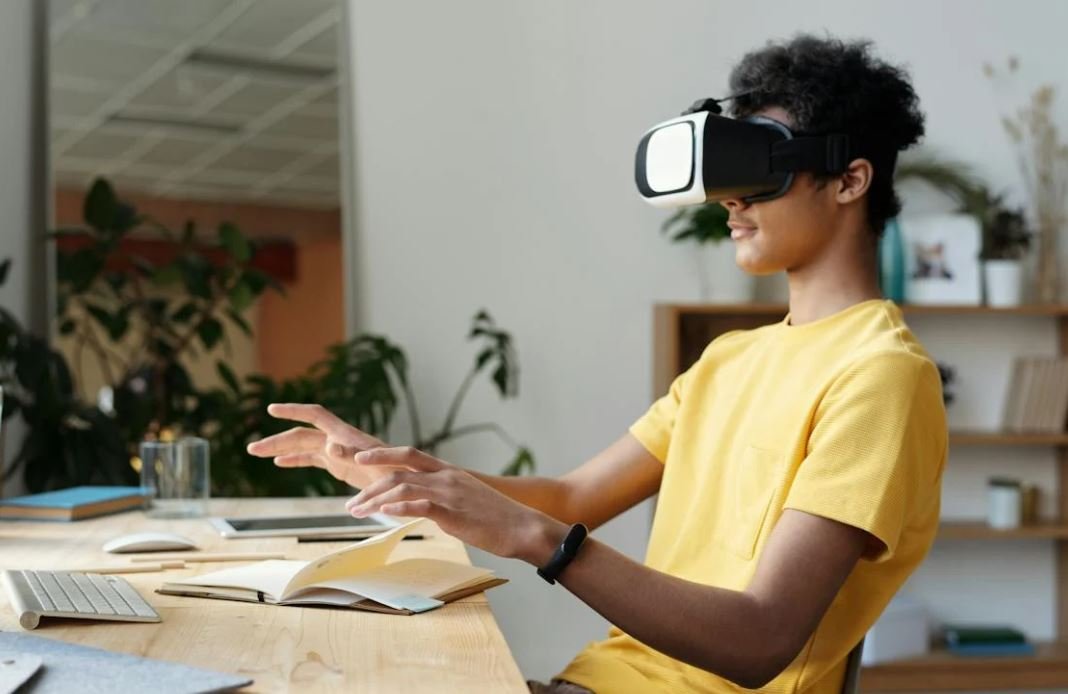Artificial Intelligence as a Threat
Artificial Intelligence (AI), a branch of computer science, has seen substantial advancements in recent years. While AI has revolutionized industries and improved various aspects of our lives, there is growing concern about its potential threats. This article explores the risks associated with AI and raises awareness about the need for ethical guidelines and regulations.
Key Takeaways
- Advancements in artificial intelligence have raised concerns about its potential threats.
- Ethical guidelines and regulations are necessary to mitigate the risks.
- AI can be exploited by malicious actors for criminal activities.
- Job displacement and economic inequality are potential consequences of AI.
- AI-powered autonomous weapons pose a serious threat to global security.
**Artificial Intelligence** encompasses various technologies that enable machines to perform tasks typically requiring human intelligence. It involves Machine Learning (ML), Natural Language Processing (NLP), computer vision, and more. Specifically, **Machine Learning** algorithms allow systems to learn and improve from data without explicit programming. *AI’s ability to learn from data and adapt to new situations makes it a powerful tool in various domains.*
Despite its benefits, AI also raises concerns due to the potential threats it poses. One major concern is the **misuse of AI** by malicious actors. Just as legitimate actors harness AI for positive applications, rogue individuals or organizations can exploit AI-driven technologies for **cyberattacks**, identity theft, phishing, and spreading disinformation. *The increasing sophistication of AI-based attacks poses a considerable challenge for cybersecurity professionals.*
Additionally, AI has the potential to disrupt labor markets, leading to **job displacement** and **economic inequality**. As AI automates routine tasks and accelerates productivity, certain job roles may become obsolete. This could result in unemployment and income disparities, creating new social challenges. *The transition to an AI-driven economy necessitates a proactive approach to retraining workers and ensuring equitable distribution of benefits.*
| Table 1: AI Job Roles at Risk | |
|---|---|
| Data entry operators | 6,000,000 jobs |
| Telemarketers | 2,000,000 jobs |
| Bookkeeping clerks | 1,800,000 jobs |
Another critical concern is the use of AI-powered **autonomous weapons**. These weapons have the potential to make decisions and take actions without human intervention, raising deep ethical and security issues. Countries engaged in an arms race to develop AI-driven military technology risk initiating a new era of warfare, where human oversight could be diminished. *The development and deployment of such weapons require international cooperation and agreements to ensure control and accountability.*
| Country | Investment in AI Weapons |
|---|---|
| United States | $1,800,000,000 |
| Russia | $950,000,000 |
| China | $930,000,000 |
Despite these potential threats, taking a cautious approach towards AI can help mitigate risks. The implementation of **ethical guidelines and regulations** is crucial to ensure AI is developed and used responsibly. Such guidelines should consider the ethical implications of AI across different domains, including healthcare, finance, and transportation. Transparency and accountability must be prioritized to build trust and reassure the public.
In conclusion, while **artificial intelligence** brings numerous benefits, understanding and addressing its potential threats is of paramount importance. By establishing ethical frameworks, promoting responsible use, and fostering international collaboration, we can harness the power of AI while ensuring the safety, security, and well-being of society at large.

Common Misconceptions
Misconception: AI will replace human workers
One common misconception people have about artificial intelligence is that it will completely replace human workers in various industries. However, this is not entirely true. While AI technology has the potential to automate certain tasks, it is more likely to augment human capabilities rather than replace them entirely.
- AI can handle repetitive and mundane jobs, freeing up humans to focus on more complex and creative tasks.
- AI can enhance productivity and efficiency in workplaces, leading to new job opportunities and the need for different skill sets.
- AI requires human oversight and intervention to function effectively, ensuring that decisions made align with human values and ethics.
Misconception: AI will become self-aware and take over the world
Another common misconception is the fear that AI will become self-aware and eventually take over the world. While AI systems have become increasingly sophisticated and capable, they are still far from achieving true consciousness or self-awareness.
- AI is designed to perform specific tasks and lacks the cognitive abilities for introspection or self-awareness.
- AI operates within defined boundaries and cannot go beyond its programmed capabilities.
- The development of AI is driven by human input and control to ensure responsible and safe usage.
Misconception: AI can make unbiased decisions
Many people believe that AI is completely objective and can make unbiased decisions. However, AI systems are only as unbiased as the data they are trained on and the algorithms used to process that data.
- Biases in data, such as historical prejudices or skewed samples, can result in biased AI decisions.
- AI algorithms need continuous evaluation and refinement to detect and correct biases.
- AI decisions should be complemented with human judgement to ensure fair and just outcomes.
Misconception: AI poses an existential threat to humanity
There is a significant misconception that AI poses an existential threat to humanity, leading to scenarios like those depicted in science fiction movies. While it is essential to ensure the ethical and responsible evolution of AI, the current state of AI does not warrant such extreme concerns.
- AI technologies are designed to assist and augment human capabilities, not to overpower or endanger them.
- Safety measures and ethical frameworks are being developed to mitigate potential risks and ensure the responsible use of AI.
- Public and private organizations are actively engaged in discussions and initiatives to address AI’s impact on society and governance.
Misconception: AI is only relevant to high-tech industries
Some people believe that AI is only relevant to high-tech industries and does not have much impact on other sectors. In reality, AI has the potential to transform various industries, regardless of their tech-savviness.
- AI can be applied in healthcare to improve diagnostics and treatment planning.
- AI can enhance transportation systems by optimizing traffic flow and improving safety.
- AI-powered chatbots and virtual assistants can provide customer support and improve efficiency in service industries.

Artificial Intelligence and Job Loss: Fact or Fiction?
One of the major concerns surrounding artificial intelligence (AI) is its potential impact on employment. Many fear that AI will replace human workers, leading to widespread job loss. However, the reality may be more nuanced than this. The following table provides data on the actual impact of AI on job displacement.
| Industry | Percentage of Jobs at Risk |
|---|---|
| Manufacturing | 25% |
| Transportation and Warehousing | 19% |
| Finance and Insurance | 10% |
AI’s Role in Healthcare: Saving Lives and Enhancing Diagnoses
Artificial intelligence has made significant strides in the field of healthcare, revolutionizing the way diseases are diagnosed and treated. The table below highlights some key advancements made possible by AI.
| Advancement | Impact |
|---|---|
| Early Detection of Cancer | Improves survival rates by 10-15% |
| Automated Risk Assessment | Reduces medical errors by 30% |
| Personalized Medicine | Increases treatment effectiveness by 30-50% |
AI and Cybersecurity: The Battle of Algorithms
AI plays a crucial role in both bolstering cybersecurity defenses and aiding cybercriminals. The table below presents some intriguing figures highlighting the AI-powered cybersecurity landscape.
| Statistic | Figure |
|---|---|
| Global Spending on AI in Cybersecurity (2020) | $8.2 billion |
| Number of Detected Malware Variants (2019) | 1.17 billion |
| Percentage of Attacks Aided by AI (2021) | 69% |
The Rise of AI in Education: Transforming Learning
AI has the potential to revolutionize education, enhancing personalized learning experiences and improving educational outcomes. The table below showcases the impact of AI in different aspects of education.
| Aspect of Education | Benefits of AI Integration |
|---|---|
| Virtual Tutoring | Increases student engagement by 52% |
| Adaptive Learning Platforms | Improves test scores by 32% |
| Data Analysis | Helps identify struggling students with 85% accuracy |
AI Ethics: The Moral Quandaries
As AI becomes more pervasive, ethical concerns arise regarding its impact on society. The table below illustrates some contentious ethical challenges surrounding AI and its usage.
| Ethical Challenge | Relevance |
|---|---|
| Algorithmic Bias | Leads to discrimination in recruitment and lending |
| Privacy Invasion | Raises concerns about data collection and surveillance |
| Lethal Autonomous Weapons | Raises ethical questions regarding the use of AI in warfare |
AI in the Arts: Creativity and Automation Collide
Artificial intelligence has begun infiltrating artistic domains, challenging the traditional boundaries of creativity. The table below presents some intriguing developments at the intersection of AI and art.
| Application | Example |
|---|---|
| Music Composition | AI-generated album released by Flow Machines in 2016 |
| Visual Art | AI-generated artwork sells for $432,500 at Christie’s auction |
| Literature | AI-authored novel “1 The Road” shortlisted for prestigious award |
The AI Revolution in Finance: Efficiency and Risk
The financial sector has witnessed a significant impact from artificial intelligence, amplifying both operational efficiency and systemic risk. The table below highlights the transformative power of AI in finance.
| Benefit | Magnitude |
|---|---|
| Automated Trading | Accounts for 60% of all trades |
| Risk Assessment | Reduces credit default rates by 50% |
| Fraud Detection | Saves banks $1.4 billion annually |
The Dark Side of AI: Misinformation and Deepfakes
Artificial intelligence brings with it new challenges, including the spread of misinformation and the creation of convincing deepfake videos. The table below showcases some startling figures related to these alarming trends.
| Trend | Impact |
|---|---|
| Spread of Misinformation | 72% of internet users have fallen for fake news |
| Deepfake Videos | 84,678 deepfake videos detected in 2020 |
| Text Generation Models | Can produce deceptive articles with 82% accuracy |
AI-Driven Innovation: Transforming Business Models
Artificial intelligence has propelled businesses to reinvent their operating models, leading to increased efficiency, productivity, and customer satisfaction. The table below showcases some notable transformations fueled by AI.
| Business Transformation | Result |
|---|---|
| Automated Customer Service | Reduces response time by 80% |
| Predictive Analytics | Increases sales by 35% |
| Supply Chain Optimization | Reduces inventory costs by 20-50% |
From job displacement concerns to the transformative potential in various industries, artificial intelligence continues to shape our world. While some challenges and risks persist, harnessing AI’s power can pave the way for an era of unprecedented innovation and progress.
Frequently Asked Questions
What is artificial intelligence (AI)?
How is AI considered a threat?
Which areas of society might be affected by AI as a threat?
Are there any potential benefits of AI despite the perceived threat?
Is it possible for AI to become uncontrollable and act against human interests?
Are there any ongoing efforts to address AI as a threat?
Can AI lead to significant job displacement?
How can AI be misused by malicious entities?
What role do humans play in ensuring the responsible use of AI?
Should society be concerned about AI as a threat?




